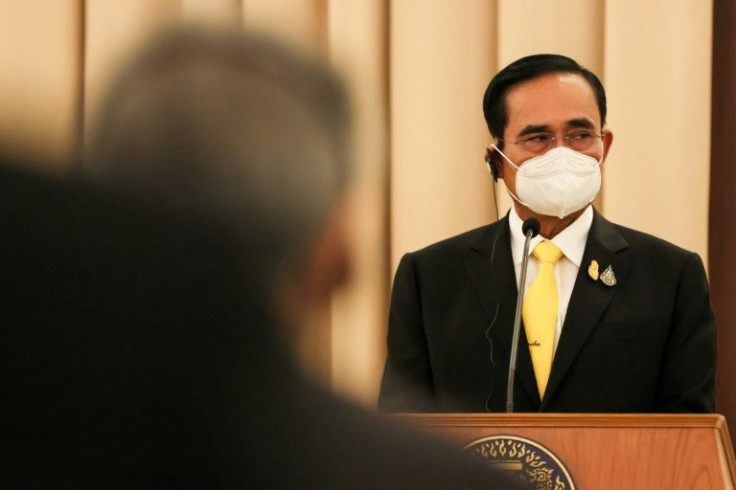Thailand’s 609km Railway To China To Finish By 2028
KEY POINTS
- Thailand aims to complete its part of the railway project with China by 2028
- The first part of the Thai section is expected to launch in 2027
- Around 5% of the overall project has been built, according to reports
Thailand has pledged to complete its part of a delayed 609-kilometer (378-mile) high-speed rail system with China before the end of the decade, but experts claimed the target could be more of a political statement.
The 434 billion baht ($12 billion) project linking the two countries through Laos is expected to finish by 2028, Thai Transport and Foreign Affairs ministries officials revealed on July 6.
It came a day after Chinese Foreign Minister Wang Yi met with Thai Prime Minister Prayut Chan-ocha and Foreign Affairs Minister Don Pramudwinai in Bangkok.
The meeting included talks on a "Thailand-Laos-China Connectivity Development Corridor," according to a Thai Foreign Affairs Ministry statement on Wang’s visit.
The first part of the Thai section, a 157-mile stretch with a budget of 180 billion baht ($4.9 billion), will run from the Thai capital of Bangkok to the city of Nakhon Ratchasima, Bloomberg reported.
Meanwhile, the 221-mile-long second part, valued at 254 billion baht ($6.9 billion), will reach the northeastern province of Nong Khai, located across the Mekong River from the Lao capital of Vientiane.
A $6 billion high-speed train to the Laos-China border started service in Vientiane in December, according to Voice of America.
Thailand has completed 12% of the first stage and expects a test run by 2026, followed by the official launch the following year, Pichet Kunadhamraks, the director-general of the country's Department of Rail Transport, said.
However, only 5% of the overall project, first conceived in 2014 under China's Belt and Road Initiative, has reportedly been built.
Thailand's initial goal for its portion of the rail system was for it to be completed by about the same time Laos finished its section. But the target has long been abandoned, according to Ruth Banomyong, a professor of international trade, transport and logistics at Thailand’s Thammasat University.
The pledge announced on July 6 was even "a bit confusing" as top transport officials were still noncommittal on a new goal as late as last month, Banomyong said.
While feasible, the new target may be more of a political statement made with an eye on next year's national elections rather than a "technical" one, according to the professor.
"The prime minister is probably at his lowest in terms of various [opinion] polls that have been published, and he wants to stay in power, but he needs to have something to show for himself. So, they need to re-put this project in the public eye, saying that, oh yes, it is going to be done," Banomyong explained.
Growing frustration in Beijing with the pace of Thailand's progress may have played a part in the announcement as well, Banomyong claimed.
"The fact that it’s announced after a meeting with the Chinese foreign minister, Wang Yi, it does make it look like they’re feeling some pressure to be at least looking like they’re moving forward with this project," Greg Raymond, a lecturer at Australian National University studying China’s growing connections with mainland Southeast Asia, said.
"But when you look at the pattern of [Thailand’s] decision-making, the pattern of action... the degree of commitment has to be questioned," he added.
The Thailand-China project will help plug some of Southeast Asia's largest and most dynamic economies into China's landlocked south, which would give the underdeveloped region a boost, according to analysts.
And much like other projects in the Belt and Road Initiative, it would build on China's goal of forging a regional economy centered on itself.
For Thailand, the new line could mean more exports to China, as well as investments from the country.

© Copyright IBTimes 2024. All rights reserved.





















